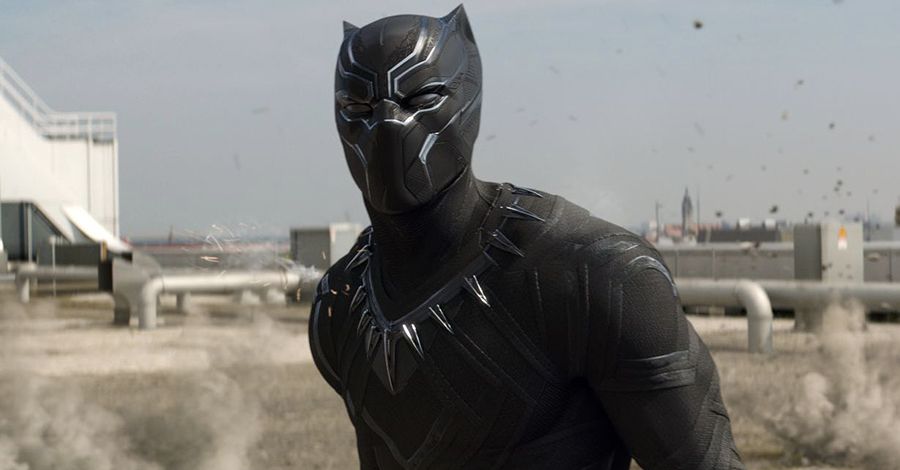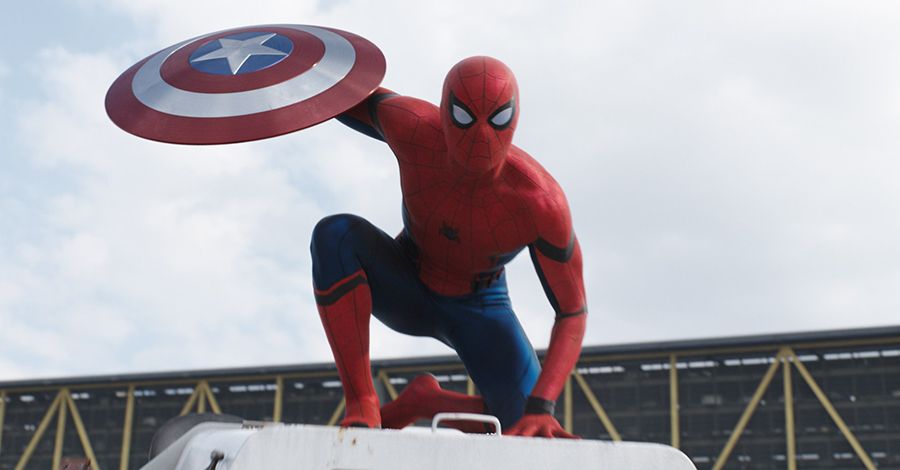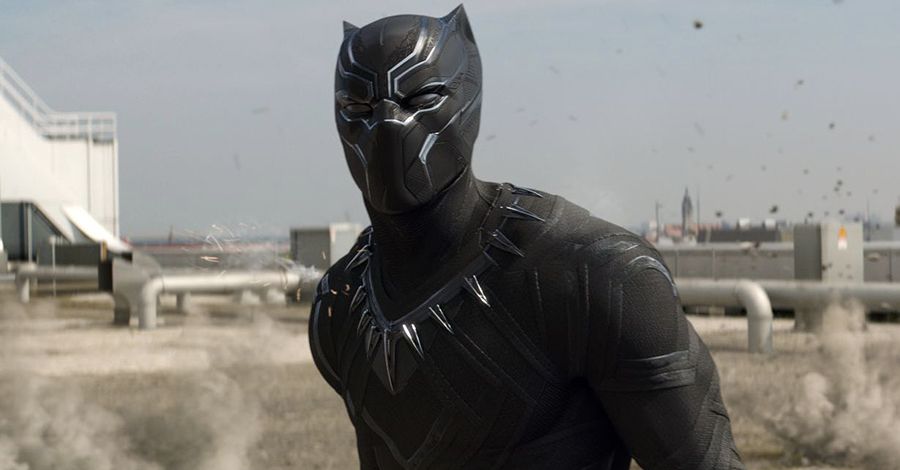At its core, "Captain America: Civil War" revolves around a philosophical, personal and physical conflict between Captain America and Iron Man. Steve and Tony aren't the only ones fighting a civil war, though, as their confrontation draws in nearly all of their Avengers colleagues and, perhaps more importantly, two new -- and soon to be very crucial -- players in the Marvel Cinematic Universe: Spider-Man and the Black Panther.
Spider-Man's journey from Sony Pictures' to Marvel Studios is almost a staple of showbiz lore now. After the less-than heartening critical performances of 2012 and 2014's "Amazing Spider-Man" films, the studio -- which controls the wall-crawler's movie rights independently of Disney-owned Marvel Studios -- struck a creative pact with Marvel that allows them to oversee the character's future films. This deal also, in a move that's most exciting to fans, makes Spidey part of the growing, interconnected fabric of Marvel's onscreen landscape.
RELATED: "Captain America: Civil War" Screenwriters Discuss Black Panther & Spider-Man's 'Organic' Intros
But then a trickier creative question came into play: While most of the Avengers and additional Marvel heroes had been strongly established enough in other films to easily fold into "Civil War" in simple, organic ways, how would the filmmakers effectively recruit a hero as iconic as Spidey into the storyline without having the newcomer steal the show? And on top of that, how would they find room to introduce a character as rich and intriguing as the Black Panther?
As the filmmakers and actor Robert Downey Jr. revealed during their recent press tour, both characters needed to serve very specific functions in relation to the bigger story, and casting -- Tom Holland as rookie teen hero Peter Parker and Chadwick Boseman as a regal, young Prince T'Challa -- would be crucial, not only for "Civil War," but for their planned solo films as well.
Anthony Russo ("Captain America: Civil War" co-director): It was very important to all of us, all the filmmakers and the folks at Marvel -- Kevin [Feige], my brother, myself, the writers -- we knew we wanted to tell a really complicated story between Captain America and Iron Man in this movie, a story that went to very difficult, dark places. We're big fans of balance in storytelling. We like really well rounded movies, movies that make us laugh and cry.
So for us, it became very important to find a way to change the dynamic and modulate the tone in the movie by bringing in characters that didn't have the same emotional investment that all the Avengers had about the events that were unfolding, because they're very serious events, complicated events.
To bring in characters like Spider-Man, who doesn't have that baggage, it gave us an opportunity as storytellers to bring new colors into the film at a deep place in the movie. Lighter colors, more whimsical colors... We tried to find very organic ways that those characters found their ways into the movie -- both of those characters. Kevin was very critically central to making it happen. I don't know that a lot of people could have pulled off getting Spider-Man in this movie except for Kevin Feige.
Kevin Feige (Marvel Studios President): I called Robert relatively early saying, "I think there's a chance we might put Spider-Man in this movie." And his reaction was actually one just like a fanboy, which was unbelievably excited for what that could mean for this movie.
Robert Downey Jr. (Tony Stark/Iron Man): I don't know how old you are, but I'm 51, and only sociopaths are still so self-centered in the extreme that they can't make space for other people. I think what I've learned slowly over time is that once you make some space for yourself, it's all about the other people that you're working with. I think Tom did a great job.
Feige: We culled [the Spider-Man casting] down to about five finalists [and asked Robert] "If we bring them to Atlanta, would you mind reading with all five?" And he did, and we culled it down a little bit more, and he did, and that is how Tom came to the top. Tom and one other person came back and read and did more of a stunt test in which Chris Evans was gracious enough to read opposite him.
But really, it was fun seeing that Robert was invested. And to see Tom react to Robert, which was not dissimilar from the way Peter was reacting to Tony. It was actually quite cool.
Downey, Jr.: That Holland kid couldn't hit his ass with both hands until I started working closely with him. [Laughs]
Russo: Obviously, the character has a very special relationship with Robert's character in the movie. Most of his work, the vast majority of his work is with Robert. Robert was incredibly generous in terms of going through the process... Helping us all figure out who the right person was for the role. Not only that, once Tom got cast to all of our delight, then working with Tom, a young performer, bringing him into this very complicated fold with all these very sophisticated performers and pedigreed performers.
When Robert did [a crucial] scene with Tom, and I remember [co-director] Joe [Russo] and I sitting at the monitors and reflecting on the idea that, wow, the greatest gift that you can give an actor is to be in a scene with Robert Downey Jr. Obviously, he's a very talented performer, a very improvisational performer. He knows how to pull the best out of people that are working with him.
Feige: It was relatively early on in the development process of the movie that Joe and Anthony and our screenwriters Chris [Markus] and Steve [McFeely] thought it would be very valuable to have people that weren't quite as invested. We wanted somebody who perhaps was invested, but didn't have allegiances to any one side, who was essentially in it for very personal reasons himself.
We knew we wanted to make a Black Panther movie at some point, but at that time, we weren't sure exactly when that would be. But as these discussions were going on, we thought, "I think we're going to bring Black Panther into this movie." I'm not kidding when I say Chadwick was the only choice -- his performance in "42," his performance in "Get on Up," and how different those performances are.
My memory is we called him on the conference room speaker when we were developing the movie, and got him while he was somewhere in Switzerland or something at a premiere for "Get on Up," and he was in his car, either about to get out, or had just gotten back in. And we said, "Have you ever heard of the Black Panther?" And he went, "Yes. Yes. Why are you asking me that?" And we said, "Do you want to play the part?" And he was very excited, and it happened very, very quickly.
RELATED: Chadwick Boseman Wanted to Play Black Panther Years Before He Was Cast
Downey, Jr.: I couldn't be more excited than for Chadwick...I'll tell you, casting one of these characters -- lives are on the line, you would imagine. It was such a big coup and he's really demonstrated why he was the right guy for the job.
Feige: The success with balancing these characters goes to Chris Markus and Steve McFeely, who really know that, talking about Spidey, screen time doesn't equal... it's quality not quantity, right? If people have moments that land, if people have a laugh, if people have a cheer, that's sometimes all you need to say is, "This character has been serviced -- let's move on to bigger story."
And Joe and Anthony are always so adamant, rightfully so, that the overall story's being serviced as opposed to every single character in the film. So I think that's how you take this many characters and balance a singular, relatively simple story, and have them there in each of their moments where they earned a laugh, or earned a tear, or earned a cheer, serve the very specific story.
Directed by Joe and Anthony Russo and starring Chris Evans, Robert Downey Jr., Scarlett Johansson, Chadwick Boseman, Anthony Mackie, Elizabeth Olsen, Sebastian Stan, Paul Bettany, Don Cheadle and more, "Captain America: Civil War" opens on May 6.



